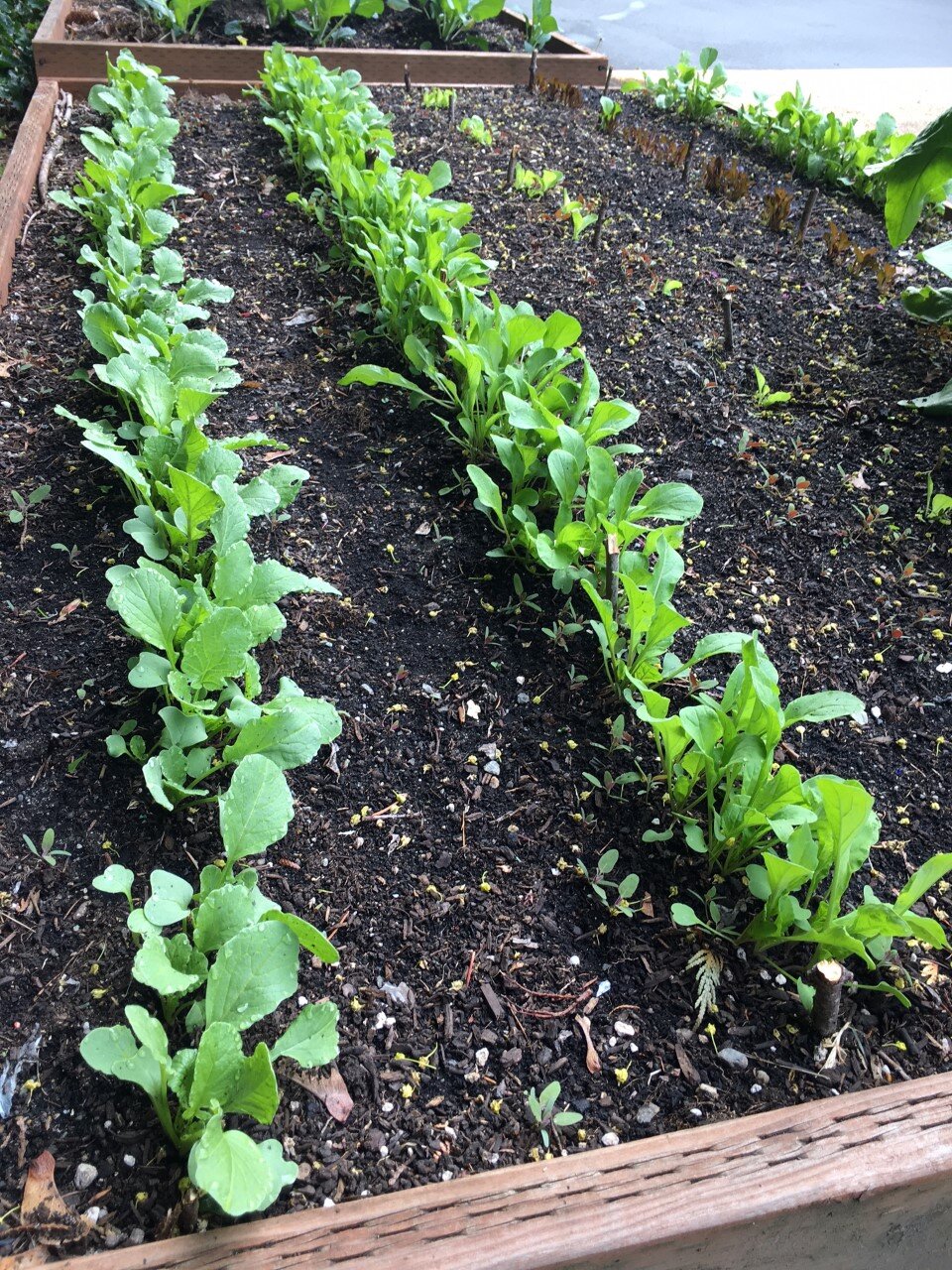This week, with May approaching, we check in on our Union Gardens project with a mixture of gratitude and anticipation. Then, we revisit two previously discussed components of our work to live more eco-friendly lives: recycling and our food consumption. First, Union Gardens ….
As the photo at left shows, radishes and arugula, sown just a few weeks ago, are growing nicely. And look carefully center-right to spot some butterhead and romaine lettuces sprouting. It won’t be long now….
At this point, just about everything can be safely sown or transplanted into outdoor gardens. For us, this means adding tomatoes, peppers, onion sets, carrots, bok choy and beans, as well as succession-planting lettuce. Our hope is that, by the end of May and early June, we will start to have some produce to share. If you have been thinking about joining the Union Gardens project, this is a great time to get started—in your back yard or a nearby pea patch, or on your deck, porch or windowsill.
Perhaps you have noticed and been encouraged by the recent wave of good environmental news. Ford, GM and Volvo, for example, have announced timelines for going all-electric. Tesla founder Elon Mush is financing a $100 million competition for the creation of solutions that remove carbon from the environment. The Environmental Protection Agency plans to allow California to resume setting its own (rigorous) vehicle emissions standards. And last week, the Biden administration joined with other world leaders to announce a focus on a clean energy future. These and similar developments are exciting in part because of the scale on which the players operate—far beyond what any individual can achieve. And with governments and corporations signaling they will do the “heavy lifting,” we have an opportunity to fine-tune the work we continue to do as individuals.
Recycling
We all dutifully follow the rules: buy-use-recycle-done. We’re environmentally responsible consumers, right? We do our part, and then pass the baton to our municipalities so they can finish the job properly. But is this approach really working? Or are we deluding ourselves? Maybe we as consumers have some opportunities to focus our efforts for better results, for example:
avoiding products that come in plastic containers or multi-material containers (e.g., foil-lined chip bags)
buying foods in bulk, using our own containers
using Ridwell to dispose of plastic films
Such actions, over time, signal manufacturers that we want their help in eliminating plastics from the environment.
Food consumption
What we eat, particularly red meat, impacts the environment: raising/feeding beef, for example, accounts for perhaps 6% of greenhouse gas emissions annually. As the world’s population grows and becomes more affluent, demand for meat will increase, leading to deforestation to free up more land for grazing and feed crop production—creating more greenhouse gas emissions. How do we help avoid this problem? We don’t need to become vegans or vegetarians; we just need to eat less meat, substituting chicken, fish and plant-based proteins for a portion of our current meat consumption.
So what can we take away from our journey to this point? Governments and major corporations appear to be stepping up to fight global warming on a scale only they are capable of—encouraging news. Furthermore, much
remains that each of us can individually contribute—more good news. And seeds + earth + water + sun still yield food to enjoy—and share. Good news indeed!




